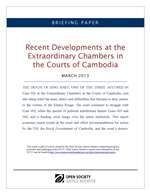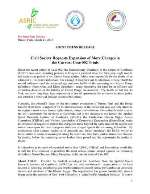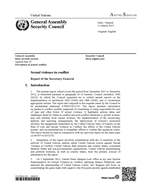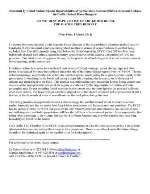Published by UN General Assembly Security Council on 14 March 2013
In his Annual Report on Sexual Violence in Conflict for the period of December 2011 to December 2012, UN Secretary-General Ban Ki-moon reports on the implementation of UN Security Council Resolutions 1820 and 1888 in Cambodia and recommends appropriate actions as follows (para. 114):
“In Cambodia, crimes of sexual violence, with the exception of forced marriage, have not been taken up by the Extraordinary Chambers in the Courts of Cambodia, a Cambodia-United Nations hybrid tribunal established under Cambodian law in 2004 to bring to justice senior leaders and those most responsible for atrocities committed between 17 April 1975 and 6 January 1979. Nor have sexual crimes been integrated into the forensic, investigative or prosecutorial strategies of the Extraordinary Chambers. According to the Extraordinary Chambers, the possibility of expanding the scope of charges against the accused to crimes beyond those in the indictment is precluded by its legal framework. In December 2011, a hearing on sexual violence under the Khmer Rouge regime revealed that sexual violence was a daily reality for most women, that acts of sexual violence were seldom punished and implicitly endorsed by an “enemy policy” promulgated by leaders at the highest levels and that survivors continue to suffer from trauma, discrimination and stigma. I reiterate the call made by my former Special Representative for the Government to ensure the rigorous documentation of such crimes for the historical record and for the Extraordinary Chambers to establish mechanisms for the appropriate recognition of and reparations for victims of sexual violence, as well as the effective prosecution of perpetrators of crimes of sexual violence and forced marriage.“





